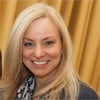 Fake political news has dominated the headlines over the past few years, but the proliferation of science denial and misinformation about health and medicine has also caused widespread concern.
Fake political news has dominated the headlines over the past few years, but the proliferation of science denial and misinformation about health and medicine has also caused widespread concern.
Most notable is the misleading or false information on social media about the perceived dangers of vaccines. Even before the COVID-19 pandemic began to sweep the world in 2020, the World Health Organization (WHO) declared vaccine hesitancy to be one of the 10 greatest global threats to human health.
The spread of medical misinformation has grown so serious that in 2021 the US Surgeon General released an advisory titled “Confronting Health Misinformation.”
“Health misinformation is a serious threat to public health,” writes Dr. Vivek H. Murthy, Surgeon General of the United States. “It can cause confusion, sow mistrust, harm people’s health, and undermine public health efforts.”
What are the important takeaways from the advisory? What do medical communicators need to know about misinformation and how to counteract its spread?
Making Educated Decisions
The Surgeon General’s advisory defines misinformation as “information that is false, inaccurate, or misleading according to the best available evidence at the time.”
Misinformation is slightly different from disinformation, which has a malicious intent. According to Oxford Languages, disinformation is “false information which is intended to mislead, especially propaganda issued by a government organization to a rival power of the media.”
In the past three years, both misinformation and disinformation have proliferated online and on social media. Health misinformation was at the root of the anti-mask, anti-vaccination movement. It also created a hostile environment for public health workers, health workers, airline employees, business owners, and anyone responsible for enforcing public health rules concerning the pandemic.
The Surgeon General offers the following tips to determine if information is true.
- Consult the CDC.gov or other verified public health websites.
- Talk to clinicians about obtaining additional information.
- Type the claim into a search engine to see if it has been verified by a credible source.
- If the information is on a website, examine the “About Us” page to help determine the origin of the information.
- Don’t share information if you are uncertain if it’s valid.
The Surgeon General also offers A Community Toolkit for Addressing Health Misinformation.
How did we get here? The history of medical misinformation about childhood vaccines helps us understand the context for the current polarization around public health measures.
The History of Vaccine Misinformation
Despite valid data showing that vaccines are one of the most cost-effective ways to control childhood diseases, the safety of vaccines has been questioned since research in the late 1990s showed a link between the MMR vaccine and autism; the research was proved to be fraudulent, but the damage to vaccine credibility was long-lasting. With the rise of the “anti-vaxxer movement,” many medical and scientific groups galvanized to combat the threat of anti-vaccination activity to global public health.
Thousands of parents now choose not to vaccinate their children because of religious or personal beliefs, which led to outbreaks of measles (more than 1274 cases) in 2019. The anti-vaxxer movement accelerated with access to social media platforms that allowed people, groups, and bots to spread unsubstantiated information and bogus medical research.
Anti-vaccination groups developed effective social media campaigns to promote mistrust of vaccines, often influencing well-intentioned parents who were merely hesitant or concerned about their child’s immunizations. In 2019, the American Medical Association (AMA) called on CEOs of top social media companies to combat vaccine misinformation campaigns on their platforms. Facebook and other social media companies began to reject anti-vaccination ads, but the efforts were inadequate in the face of rapidly spreading misinformation during the COVID-19 pandemic.
The Salzburg Global Seminar, a group of independent leaders in public health, law, and medicine from Europe, Asia, Australia, Africa, and the Americas, issued a statement asserting its commitment to global vaccine acceptance and to eliminating vaccine-preventable diseases. “This is a human-made, dangerous and wholly unnecessary crisis. We have formed an International Working Group (IWG) on Vaccination and Public Health Solutions to keep up a steady drumbeat of accurate vaccine communications until the traditional public consensus in support of childhood immunization is restored,” says Dr. Scott Ratzan, founding editor of the Journal of Health Communication. "It is time to take the opponents of vaccination very seriously. The erosion of parental trust can have long-lasting harm for public health. We must respond with greater creativity, purpose, and generosity of spirit and use multi-sectoral approaches to address this issue."
The IWG pledged to support the development and implementation of new fact-based communication programs to help parents, communities, and government leaders make appropriate decisions on childhood immunization. “We need to communicate effectively and clearly in a health-literate way to promote the evidence-based benefits of vaccination coverage."
Restoring Trust
Misinformation about health and medicine has an impact on medical writing and medical communicators who are challenged to deliver accurate information to help restore public trust in valid medical research and scientific findings. AMWA supports evidence- and science-based medicine; the use of clear language to accurately communicate science and medicine to all stakeholders—consumers, health care professionals, regulators, and government officials alike; and the use of objectivity and diligent research in pursuit of accurate and unbiased reporting.
In an op-ed titled “Focus on communication, not misinformation,” Caitlin Rivers and Katelyn Jetelina of the website Your Local Epidemiologist stress the importance of communication and messaging in countering misinformation. “The wellspring of misinformation is effectively infinite compared to the scant resources of public health,” they write. “It is unlikely that we will ever get ahead of the deluge. But there is another way forward: we must focus instead on getting our own house in order by improving core communications.”
The crisis of misinformation makes the work of medical communicators more important than ever.


